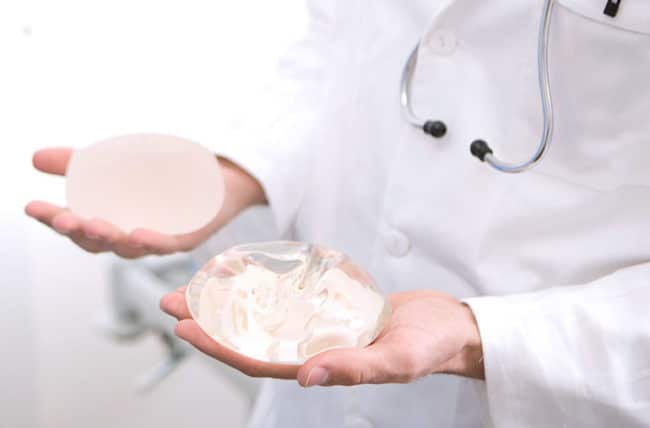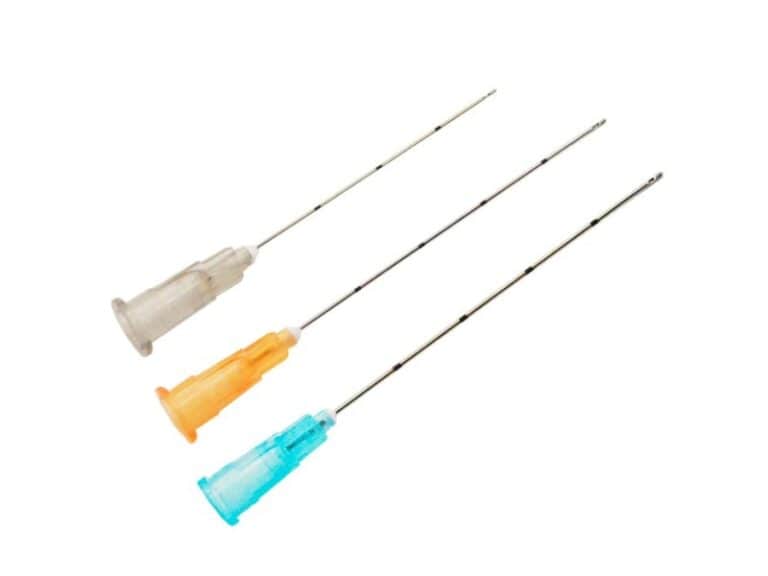ASIA Syndrome Breast Implants Symptoms: Risks & Lab Findings
Understanding ASIA Syndrome
Definition
Autoimmune Syndrome Induced by Adjuvants (ASIA) is a condition where the body’s immune system reacts to substances called adjuvants, sometimes causing local manifestation or cutaneous involvement. These substances are often found in vaccines and implants. Silicone breast implants can act as adjuvants. This means they can trigger an autoimmune response.
Criteria for Diagnosis
Shoenfeld and Agmon-Levin set criteria for diagnosing ASIA. They require both major and minor criteria.
Major Criteria:
- Exposure to an external stimulus like silicone.
- Development of autoimmune symptoms soon after exposure.
- Removal of the stimulus leads to improvement.
Minor Criteria:
- General symptoms like fatigue or fever.
- Specific symptoms such as joint pain or muscle weakness.
- Laboratory findings showing immune system activation.
A diagnosis in dermatology needs at least two major criteria or one major and two minor criteria.
Increasing Frequency
Silicone-induced ASIA cases are rising. More people report symptoms after getting breast implants. This increase highlights the need for more research.
Significance in Medical Research:
- Helps understand how adjuvants affect the immune system.
- Guides doctors in diagnosing and treating patients.
- Informs patients about potential risks before surgery.
Symptoms After Breast Implants
Onset of Symptoms
Symptoms can appear years after silicone breast implant surgery. Patients may notice changes in their skin. Redness or swelling in the breast area is common. Some experience pain or tenderness around the implants.
Cutaneous Impairment
Localized cutaneous impairment often occurs. This means the skin around the implant may become irritated, dermatology suggests. It might feel itchy or develop rashes. These symptoms can be persistent and troubling.
Non-Surgical Management
Non-surgical treatments are available. One approach involves hydroxychloroquine. This medication has been shown to improve symptoms. It reduces inflammation and helps manage discomfort.
Hydroxychloroquine Use
Hydroxychloroquine is an anti-inflammatory drug. Doctors prescribe it to reduce immune system activity. Patients taking this drug report less pain and swelling. Regular monitoring by a healthcare provider is essential.
Variety of Symptoms
ASIA syndrome presents a variety of symptoms. These can range from mild to severe. Common signs include fatigue, joint pain, and muscle weakness. Some patients experience cognitive issues like memory loss.
Diversity of Presentations
The diversity of ASIA syndrome makes diagnosis challenging. Each patient may show different symptoms. For example, one person might have chronic fatigue, while another suffers from severe joint pain.
Emotional Impact
These symptoms affect more than just physical health. They can impact emotional well-being too. Chronic pain and fatigue often lead to anxiety or depression.
Seeking Help
Many patients turn to support groups for help. Forums like the discussion breast reconstruction forum provide valuable advice on implant options. Connecting with others who share similar experiences offers comfort.
Local Complications and Effects
Cutaneous Manifestations
Silicone breast implants can cause various skin problems. Cutaneous manifestations may include rashes, redness, and swelling. Patients often report itching and discomfort around the implant area. These symptoms can be early signs of complications.
Skin rashes and allergic contact dermatitis are common. These conditions can lead to more severe dermatological alterations if not treated promptly. Early detection is crucial to prevent further skin damage.
Localized Symptoms
Localized symptoms impact patient quality of life significantly. Pain and tenderness around the implant site are frequent complaints. Some patients experience cutaneous impairment, making daily activities difficult.
Swelling and lesions may also appear. These abnormalities often require medical attention to manage effectively. Timely intervention helps in reducing discomfort and preventing further issues.
Systemic Symptoms
Silicone implants can trigger systemic symptoms too. Some patients develop autoimmune responses due to exposure to silicone breast implant. This can result in widespread inflammation and other health issues with breast implant procedures.
Symptoms like joint pain, fatigue, alopecia, and breast implant have been reported. These systemic effects from the breast implant can complicate the patient’s overall health condition. Monitoring these symptoms is essential for proper treatment.
Autoimmune Responses
Research shows that silicone implants may cause autoimmune responses in some individuals. The body’s immune system reacts to the silicone breast implant as a foreign substance. This reaction can lead to chronic inflammation.
Patients with pre-existing autoimmune conditions and breast implants are at higher risk. They may experience exacerbated symptoms postoperation. Regular check-ups help in managing these risks effectively.
Importance of Early Detection
Early detection of local complications is vital for successful treatment. Identifying symptoms like skin rashes or lesions early on can prevent severe outcomes. Immediate medical intervention can alleviate most of these issues.
Patients should report any unusual changes around the implant site promptly. Regular follow-ups with healthcare providers ensure better management of potential complications related to the implant.
Lab Findings and Autoimmune Links
Antinuclear Antibody
Patients with ASIA syndrome often show positive antinuclear antibody (ANA) results. This lab finding indicates the presence of autoantibodies. These antibodies target the body’s own cells, leading to autoimmune issues. Many patients with silicone breast implants have tested positive for ANA. This suggests a link between the implants and the immune response.

Negative allergy patch tests are also common. This means that allergies to external substances are not causing the symptoms. Instead, the immune system seems to react to the silicone itself.
Skin Abnormalities
Individuals with ASIA syndrome may experience various skin abnormalities. Common symptoms include rashes and hardening of the skin. A skin biopsy can reveal inflammation and other changes in skin tissue. This helps doctors confirm that the symptoms are related to an autoimmune reaction.
Hydroxychloroquine is sometimes prescribed to manage these skin issues. This medication reduces inflammation and suppresses the immune system. It has been effective in treating some patients with ASIA syndrome.
Autoantibodies Development
Silicone breast implants have been linked to the development of autoantibodies. These are antibodies that mistakenly attack healthy tissues. The body’s immune system identifies silicone as a foreign substance. This triggers an immune response, leading to chronic inflammation.
Research shows that women with silicone implants often develop these autoantibodies over time. The presence of these antibodies can lead to various autoimmune diseases. These include lupus, rheumatoid arthritis, and scleroderma.
Absence of Other Abnormalities
Interestingly, many patients with silicone-induced ASIA do not show other rheumatological test abnormalities. Tests for conditions like rheumatoid factor or anti-CCP antibodies often come back negative. This absence helps differentiate ASIA from other autoimmune diseases.
Doctors rely on a combination of lab findings to diagnose ASIA syndrome. Positive ANA results and specific skin abnormalities help pinpoint this condition. The lack of other rheumatological markers further supports the diagnosis.
Review of Clinical Signs
Clinical Signs
Patients with silicone-induced ASIA syndrome show diverse symptoms. Common signs include dermatological symptoms like skin rash and erythematous lesions. Some patients present with lupus-like manifestations, such as joint pain and fatigue.
Diagnostic Criteria
Doctors rely on several diagnostic criteria to identify ASIA syndrome. These include clinical findings, laboratory results, and biopsies. Blood tests often show elevated inflammatory markers. Biopsies may reveal silicone particles in tissues.
Dermatological Symptoms
Skin issues are prevalent among ASIA patients. Nonpruritic lesions and erythematous lesions are common. These skin changes can be widespread or localized. Dermatology specialists play a crucial role in diagnosing these conditions.
Variability in Signs
Clinical signs vary greatly among patients. This variability makes diagnosis challenging. Some patients experience mild symptoms, while others have severe reactions. The wide range of symptoms complicates the diagnostic process.
Importance of Diagnosis
Accurate diagnosis is vital for effective treatment. Early identification can prevent complications. Misdiagnosis can lead to ineffective treatments and prolonged suffering.
Autoimmune Responses and Diseases
Autoimmune Reaction
Silicone breast implants can trigger an autoimmune reaction. The body may see the silicone as a foreign invader. This leads to inflammation. Some patients with implants report symptoms like fatigue and joint pain.
Lupus
Lupus is an autoimmune disease. It causes the immune system to attack its own tissues. Silicone implants might worsen lupus symptoms. Patients could experience skin rashes, fever, and swollen glands.
Scleroderma
Scleroderma is another condition linked to silicone breast implants. It involves hardening of the skin and connective tissues. The presence of implants could accelerate these symptoms. Patients might notice tight, thickened patches of skin.
Sjögren Syndrome
Sjögren syndrome affects moisture-producing glands. People with this syndrome have dry eyes and mouth. Implants may exacerbate these symptoms. They might also cause swollen glands in the neck and face.
Genetic Predisposition
e people have a genetic predisposition to autoimmune diseases. If they get silicone breast implants, their risk increases. These individuals should discuss their family history with doctors before surgery.
Disease Awareness
Healthcare providers need to be aware of these risks. They should inform patients about potential autoimmune reactions. Early detection can prevent severe complications.
Implant Removal Process
Surgical Procedure
Implant removal surgery is a detailed process. It involves making an incision in the breast area. The surgeon then carefully removes the implants. If there is scar tissue, it may also be taken out. This helps reduce inflammation and other symptoms.
The surgery usually takes a few hours. Patients are often given general anesthesia. This ensures they do not feel pain during the procedure. Surgeons with aesthetic surgery education perform these operations.
Recovery Time
After the surgery, recovery is crucial. Most patients need to rest for several weeks. They may experience swelling and discomfort. Pain medication can help manage this.
Patients should avoid strenuous activities. Follow-up visits are necessary to monitor healing. Proper care can prevent complications.
Symptom Relief
Many patients report symptom relief after implant removal. This includes reduced fatigue and joint pain. Some also notice improved skin conditions.
Studies show that removing implants can lessen autoimmune responses. This leads to better overall health.
Psychological Impact
Deciding to remove implants can be emotional. Many women feel attached to their physical appearance. Removing implants may affect their self-esteem.
Support from family and friends is vital. Counseling can also help patients adjust emotionally.
Physical Considerations
Physically, implant removal is significant. It affects the shape and size of the breasts. Some women may choose additional procedures for reconstruction.
Surgeons discuss options with patients before surgery. This helps them make informed decisions about their bodies.
Current Research Insights
Recent Studies
Recent studies have focused on the relationship between silicone breast implants and autoimmune syndromes. Researchers from the Universidade Federal de Mato Grosso conducted a study in 2020. They examined women with silicone breast implants. The study found that many of these women reported symptoms consistent with autoimmune diseases.
Another study in 2018 reviewed cases of women who developed autoimmune symptoms after getting implants. It highlighted that some patients experienced relief after implant removal. This suggests a possible link between silicone implants and autoimmune reactions.
Gaps in Research
Despite these findings, there are significant gaps in current research. Many studies have small sample sizes. This makes it difficult to draw definitive conclusions. There is also a lack of long-term studies. Most research only follows patients for a few years.
Researchers often rely on self-reported symptoms. This can lead to bias and inaccuracies. More rigorous methods are needed to better understand the relationship between silicone implants and autoimmune syndromes.
Need for Further Investigation
There is a clear need for further investigation into ASIA syndrome. Scientists must conduct larger, more comprehensive studies. These should include diverse populations to ensure results are widely applicable.
Long-term follow-up is crucial. This will help determine if symptoms persist or improve over time. It will also provide insight into the potential long-term risks of silicone breast implants.
Medical Community Debates
The medical community remains divided on the safety of silicone breast implants. Some experts argue that there is insufficient evidence to link implants to autoimmune diseases. They believe more research is needed before making any definitive claims.
Others point to the growing number of case reports and patient testimonials as evidence of a connection. They advocate for more stringent regulations and better patient education about potential risks.
Summary of Findings
ASIA Syndrome Overview
ASIA syndrome stands for Autoimmune/Inflammatory Syndrome Induced by Adjuvants. It includes various symptoms such as fatigue, joint pain, and cognitive issues. These symptoms often appear after exposure to substances like silicone in breast implants.
Symptoms and Diagnosis
Common symptoms linked to ASIA syndrome are chronic fatigue, muscle weakness, and memory loss. Patients may also experience skin rashes and swollen lymph nodes. Diagnosing ASIA syndrome involves specific tests like blood tests for IgG levels and imaging studies.
Major Criteria
The major criteria for diagnosing ASIA syndrome include:
- Exposure to an adjuvant like silicone.
- Development of autoimmune symptoms.
- Improvement after removal of the adjuvant.
These criteria help doctors identify the syndrome more accurately.
Minor Criteria
Minor criteria support the diagnosis and include:
- Non-specific symptoms like headaches.
- Presence of autoantibodies in blood tests.
- Family history of autoimmune diseases.
Meeting both major and minor criteria strengthens the diagnosis.
Importance of Recognition
Recognizing the potential autoimmune risks associated with silicone breast implants is crucial. Silicone can act as an adjuvant, triggering immune responses in some individuals. This can lead to long-term health issues if not addressed promptly.
Case Reports and Studies
Several case reports highlight the link between breast implants and ASIA syndrome. One report showed a patient developing severe joint pain three months after surgery. Another case involved cognitive decline which improved post-explantation.
Need for Continued Research
Continued research is essential to understand the exact predisposition to ASIA syndrome. Studies should focus on identifying genetic factors that may increase susceptibility. Research can also improve diagnostic algorithms for better patient outcomes.
Patient Education
Educating patients about the potential risks of breast implants is vital. Patients should be informed about possible symptoms and encouraged to report any unusual signs early. Proper disclosure before surgery can help patients make informed decisions.
Summary
You’ve journeyed through the complexities of ASIA Syndrome and its link to breast implants. From understanding symptoms to exploring autoimmune responses, each section has shed light on the intricate connections and potential health impacts. The research insights and clinical findings emphasize the importance of awareness and early detection.
Now, it’s your turn to act. If you or someone you know experiences unusual symptoms post-implant, don’t hesitate. Seek medical advice promptly. Stay informed, stay healthy. Dive deeper into current research and be proactive about your health decisions.
Frequently Asked Questions
What is ASIA Syndrome?
ASIA (Autoimmune/Inflammatory Syndrome Induced by Adjuvants) is a condition triggered by substances like breast implants. It can lead to autoimmune responses.
What symptoms should I watch for after getting breast implants?
Common symptoms include fatigue, joint pain, and cognitive issues. Always consult your doctor if you experience these.
Are there local complications from breast implants?
Yes, local complications can include pain, swelling, and implant rupture. Regular check-ups are essential.
How are lab findings linked to autoimmune responses?
Lab tests may show elevated inflammatory markers and autoantibodies, indicating an autoimmune reaction.
What clinical signs indicate ASIA Syndrome?
Clinical signs include chronic fatigue, muscle pain, and cognitive dysfunction. Early diagnosis is crucial.
Can removing the implants alleviate symptoms?
Yes, many patients report symptom relief after implant removal. Consult with your healthcare provider for personalized advice.
What does current research say about breast implants and autoimmune diseases?
Recent studies suggest a link between breast implants and autoimmune diseases. More research is ongoing to understand this connection better.






